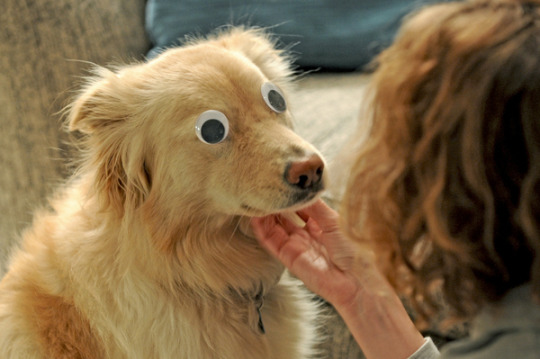Note
I love your comparison of lucy and lockwood's dynamic in the books vs the adaptation, I was just wondering if you've written anything else like this? Your analysis is so clear-sighted and well articulated.
Thank you for your kind words! I haven't got any other writing up rn, but I'm debating doing an analysis of L&Co books 3 ~ 4 as well...... I'm probably going to wait to see what the fate of the show is first though
13 notes
·
View notes
Text
Book!Lucy & Lockwood vs Show!Lucy & Lockwood: A VERY LONG Deep Dive
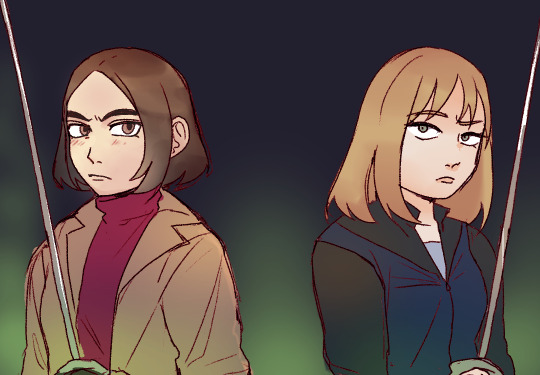
So I finished the Netflix adaptation of Lockwood & Co.
Overall, I think it was a respectful adaptation, which, despite some plot changes, kept largely to the spirit of the books. At minimum, Joe Cornish actually seems to like L&Co, which is way more than can be said about most adaptations these days. Hooray!
But I wanted to write a bit about one of the bigger changes they made: namely the dynamic between Lucy and Lockwood.
I’ve seen people saying that the Locklyle adaptation to screen was very true to the books, just without Lucy’s close personal voice, and sped up a little in the romance department (“Stroud doesn’t mention what Lucy was doing with her hands! They could have been on Lockwood’s face in the books!” etc).
Respectfully, I disagree quite a bit with this. While some argument could be made about it having shades of their relationship from THB/TCS onwards, I actually think Show!Lucy’s attitude towards Lockwood is a 180 from the way she views him in TSS and TWS.
IDK, this might be a bit of a controversial opinion judging by what I’ve been seeing in the L&Co tag and general ways people have interpreted TSS and TWS in the years since their publication, but I’m going to try to back my argument as best as I can, focusing only on those books.
I’m using the original paperback UK editions of both the Screaming Staircase (2013) and The Whispering Skull (2014).
Spoilers for the show and VERY mild spoilers for books 3+ (literally just the name of a new character/type of ghost + stuff already shown in the show that wasn’t shown until later in the books)
Another warning: this analysis is 5500(!!!) words long, and mostly quotes from the book. If you’d like to just read the main bits, look at the intro/conclusion to each section and read the TLDR; at the end.
PART 1: THE NETFLIX SHOW
Before diving into differences, there are things I do think stayed the same between the show and the books:
Lucy and Lockwood banter, swap one-liners and occasionally squabble.
Lucy remains unimpressed with some of Lockwood’s more slapdash schemes.
During missions, they work equally and trust each other with their lives and the job.
They care about each other’s wellbeing.
Basically, when things are going well between them, or when they are in high-stakes circumstances and need to cooperate, there isn’t too much of a difference between Show!Locklyle and Book!Locklyle.
But as Tolstoy (lmao) says, all happy families agents are alike, all unhappy families agents are unique in their own way. With that said, I think the differences between Show!Locklyle and Book!Locklyle are best explored through the way conflicts are handled.
In the show, there are 5 major arguments between Lucy and Lockwood:
Episode 2: Lucy feels upset and hurt because she thinks Lockwood only views her as an “asset”.
Episode 4: Lucy is upset that Lockwood doesn’t believe/doesn’t want to admit that she is talented enough to talk to the Skull
Episode 5: Lucy gets mad at Lockwood being self-sacrificing/death-seeking after they escape from the Winkmans.
Episode 7: Lucy calls Lockwood a boy with a “cold dead heart of stone”, and is upset that he won’t let her and George in on his past.
Episode 8: Lucy is furious at Lockwood using dangerous methods at the auction, that “every relic hunter in London is out to kill us”, and that Lockwood is acting self-sacrificially again.
There are also the following minor squabbles:*
Episode 1: Lucy rolls her eyes at Lockwood for forgetting the chains at Mrs Hope’s house.
Episode 1: Lucy mad at Lockwood and George for the toothbrush cup initiation test.
Episode 2: Lockwood gets annoyed and brusque with Lucy for keeping Annabel’s source and trying to communicate with her ghost. After Lucy is nearly possessed, he flintily tells her he will burn the source, and that they have more important bills to pay.
*Note there might be some more minor squabbles, but they weren’t significant enough to make their way into my notes
The most important takeaway here is that Lucy is the one who initiates most of the arguments! We can also note Lockwood’s response to Lucy’s anger: mostly he mutely self-reflects as she shouts and storms away, then later he comes to her to apologise and promises to do better.
The one time Lockwood gets mad at Lucy (Ep 2) we are a) not shown the bulk of the argument (there’s a cutaway after the fight with the ghost to Lucy justifying herself), b) it’s anger born of worry, and c) Cameron’s delivery of the lines is quite measured and muted.
In essence, when it comes to conflict, Lucy is the one holding the cards in the relationship between the two of them.
We also know the show is set much earlier than the books (which take place over the span of a whole year). Show!Lucy isn’t acting this way out of concern for a Lockwood who she’s known and loved for ages. Rather, Lockwood is someone she is not impressed by at all from the outset. The show is setting up what makes Lucy special here: unlike the adults, the other agents, and maybe even George, she’s the only one who can see through his “prodigious entrepreneur” mythos to the hurting teenager beneath.
Within the logic of the show’s universe this makes sense. Unlike Book!Lucy who is a judgemental grump (and is why she has “no female friends”; TWS p80), Show!Lucy is a more confident girl coming right off the back of losing someone she loves dearly.
Having experienced an arguably greater loss than Book!Lucy at this stage in her life, Show!Lucy seems adamant to prevent anyone else she cares about going down the same path. For Book!Lucy, this is a realisation she only comes to near the end of THB.
So to summarise, in the show, Lucy is a hurting, no-nonsense girl, unimpressed with Lockwood’s antics and objective enough to act as his “chain to earth”. From the way Lockwood responds to Lucy’s upsets, we get the sense that he’s quite sincere and maybe more in touch with his emotions than he shows on the surface.
The show portrays two people gradually learning to trust each other and perhaps slowly, mutually discovering their feelings as they do.
PART 2: BOOK: ACTIONS
The show uses disagreements as watersheds for character development, but they don’t play as significant a role in the books. Still, I went through TSS and TWS and made notes of every time there’s conflict between Lucy and Lockwood because the differences are quite telling.
TSS:
Lucy is mildly irritated/snarky at Lockwood for the entirety of the Hope case in TSS, and is angry when he forgets to bring the chains.
Lucy is angry at Lockwood for talking about the Annabel case and getting her name in the papers (TSS, 231)
Lockwood gets angry and berates Lucy for keeping the Annabel source (TSS, 179-181)
Lockwood calls Lucy “too sensitive” and accuses her of getting too close to ghosts (TSS, 248-249)
Lockwood is furious at Lucy for trying to talk to Annabel again (TSS, 284)
TWS:
Lockwood angry at Lucy for talking about the door on the landing (TWS, 116)
Lucy angry at Lockwood (and George) for taking her Listening for granted (TWS, 258)
Lucy scolds Lockwood for brushing off/slapping down George (TWS, 398)
Purely by numbers, they get mad at each other fairly evenly (rather than it being one-sided from Lucy, a la the show).
But numbers themselves don’t tell a full story. In fact, after looking at the particulars, I was surprised to see just how unbalanced their relationship is in the first 2 books (TSS in particular), and how much Lucy sits under Lockwood’s thumb for the whole thing.
Let’s look:
THE SCREAMING STAIRCASE
The Hope House - Lockwood forgetting to bring the chains.
This is the argument that plays out most similarly to how it does in the books. Lockwood asserts that filings “will be fine” for a job like this. In both mediums Lucy lets him go, but in the show she rolls her eyes and tuts, while in the books she tells herself “now (isn’t) the time”, takes a deep breath and changes the subject. In my opinion, this difference is insignificant.
BUT: in the book, the chains get brought up again. On p39, Lockwood suggests they should leave the house because it’s too dangerous, it is Lucy disagrees and thinks they should stay (as an aside, compare this with Lockwood’s behaviour in the show, particularly when escaping Winkman at the auction!).
Lockwood “condescendingly” tells her that her head isn’t in the right place, and Lucy once again accuses him of making bad decisions by leaving the chains out. Lockwood in turn first blames George (as he does in the show), then goes on to blame Lucy!
How the argument resolves is also interesting. Lockwood smiles at Lucy, and ribs her:
‘How’s your anger management going, Luce?’ (p40).
This effectively defuses Lucy’s rage (she likens his smile to “the sun coming out”).
Only after she’s no longer at the peak of her anger does he admit fault:
“He clapped his gloved hands together briskly. ‘Alright, you win'” (about staying at the house). (p40).
Even in the very first pages, we see Lockwood comporting himself as Lucy’s superior. We get the sense he doesn’t take her anger very seriously. Lucy also doesn’t seem to be able to stay mad at him for long.
Now, I've seen readings of Lockwood smiling in this moment as him being simply unable to stay mad at Lucy. That's definitely one interpretation, but I personally don't agree with it. Lockwood has a patterned habit of using his smile to get out of trouble:
“Lockwood took a deep breath; perhaps he realized he had to explain himself to George and me, as well as to Barnes…(Explanation). He switched on his fullest, most radiant smile.
Barnes winced. ‘Put those teeth away’” (TSS, p426)
And:
“‘Papers that almost certainly don’t exist,’ I growled…I didn’t look at him; if I had, he would have given me the smile, and I wasn’t in the mood for that.” (TWS, p258)
Though as we can see, by TWS Lucy has definitely wised up haha
Lucy’s name in the article
On paper, this argument is similar to the one in the show. The major difference is at no point in the books does Lucy explicitly tell Lockwood to keep her name out of the papers.
In the show, this argument leads to one of its biggest disagreements (Ep 2):
Lucy: I told you to leave me out of it.
Lockwood: And I told you I'd handle it. What are you so worried about? It's all true.
Lucy: We haven't even solved the case yet. What if Hugo Blake sees that and comes after me?
Lockwood: Well, then, we'll look after you, Luce. You're our biggest asset.
Lucy: Asset? Is that all I am, then? Just something to make you money? You think that you do things so differently. But you're just like the rest of them. You're as bad as everyone back home.
In the books, Lucy does not get angry when the article comes out (p217). She only gets upset after she’s pulled in by DEPRAC to see Hugo Blake. When the argument erupts, George is also there and it plays out like this (p232):
Lucy: “Don’t touch me. Because of your article, I came face to face with a murderer tonight, and funnily enough, I didn’t enjoy the experience.”
Lockwood: “Blake is not going to come after us”.
George: “Or if he does, it’ll be very, very slowly, hobbling on a stick. He’s over seventy years old.”
After Lockwood and George’s further justifications about why Blake is not going to “get them” (p232-233) Lucy thinks:
“What (Lockwood) said made sense, as usual. It was good to be out in the night again, with my sword and my colleagues at my side. The distress of my brief encounter at Scotland Yard was slowly fading. I felt a little better.”
We know from this that Lucy’s anger was one borne from worry and fear of Blake. By successfully alleviating that fear, Lucy’s anger at Lockwood dissipates. At no point is she mad at being treated as a showpony or asset by Lockwood. In fact, going back to when the article comes out (p 217), we’re presented with the following:
Lucy: “I still don’t know why you mentioned me but not the necklace.”
Lockwood: “It doesn’t hurt to emphasise what a star you are. We want other clients to come running, eager for your services.”
He doesn’t use the word “asset” here, but you can easily replace the word “star” with the word “asset" to get the original lines that triggered the argument in the show. To this statement, Book!Lucy has no reaction at all (the topic changes).
[As an aside, Lockwood also obliquely calls Lucy and George “inessential” on p214, which they also don’t comment on. Also, at various points he calls George and Lucy “fishwives” (p 272) and Lucy “sensitive” because she’s a girl (p 353) (lmaooo what an ass).]
Lockwood, Lucy and Annabel
I’m lumping these three arguments together because they follow the same pattern: Lucy tries to talk to Annabel, Lockwood gets upset that she keeps trying. What is absolutely fascinating is just how he treats Lucy when he is upset, and how Lucy responds to his anger in turn.
The first argument begins the morning after the fight. Lockwood says:
“Why, Lucy? I just don’t understand! You know an agent has to report any artefact she finds. Particularly one so intimately connected with a Visitor. They must be properly contained.” (p179)
He continues berating her like this (with a lot more anger than he ever displays on the show).
Lucy tries to apologise:
“Yes. I said I’m sorry! I’ve never done that sort of thing before.” (p180)
But Lockwood is still angry:
“So why did you do it now?”
Lucy spends the next page trying to explain why she took Annabel’s source, but even after her apologies and justifications, Lockwood is still furious:
“You forgot? That’s it? That’s your excuse?” (p 181)
The three of them talk a bit more about the mechanics of how Annabel ended up in the house, then when Lucy is in the middle of talking, Lockwood cuts her off again, and they have this whopper of an exchange:
“I hope you’re not trying to change the subject, Lucy,” Lockwood said in a cold voice. “I’m in the middle of ticking you off here.”
I set the case down. “I know.”
“I’m not finished, either. Not by a long chalk. I’ve got a whole heap more to say.” (Lockwood loses his train of thought here). “The point is: don’t do it again. I’m disappointed in you.”
Lucy meekly takes Lockwood’s lecture:
“I nodded. I stared at the tablecloth. My face felt cold and hot at the same time”
Lockwood’s one-sided lecture of Lucy lasts a whole five pages!!!
But he’s not done. It comes up again on p248 where Lockwood accuses Lucy of being 'too sensitive’ (in both the psychic and emotional way), and of getting “too close to (the ghosts)”. Then, in a 180 from the dynamics of power in the show (remember, Lucy threatens to quit several times), Lockwood threatens to fire her!
“You need to be careful, Lucy,” Lockwood said, and his voice was flat and cold. “Wicked ghosts aren’t things to trifle with. You’re keeping secrets again, and any agent who does that is endangering the rest of us. I’m not having anyone on my team who can’t be trusted. You understand what I’m saying?”
Again, Lucy takes this lecture meekly and submissively:
I did understand. I looked away.
In the final argument about the matter (p284) we learn that Lucy is actually a bit scared of Lockwood.
“You deliberately let her free?” Lockwood said. “That was a stupid thing to do.”
When I looked at his face, my heart quailed. “Not free,” I said desperately. “Just…freer.” (emphasis mine)
On p285 Lucy starts crying/tearing up because she thinks Lockwood:
“...Would not forgive me…this was the end of my employment at the company”.
Ordinarily, you might be able to argue that her fears are misplaced and subjective (because of her narrow perspective). This rings a little hollow given Lockwood’s threat on p248.
Does Lockwood ever apologise to Lucy during the Annabel affair? Once, when at his suggestion, Lucy tries to talk to Anabel, and things go awry:
“I’m so sorry. I should have never asked you to do that. What happened? Are you OK?” (p192)
It’s a sign that Lockwood does care about her wellbeing, despite his general distance from Lucy and the way he carries himself, which is as a figure of authority, and more importantly, as Lucy’s employer.
Seriously. We like to joke in this fandom that Lucy is too wrapped up in her own head thinking that Lockwood is out of her league to notice that he actually likes her. But reading the books again with detailed notes, I think Lucy’s impression is actually accurate.
In fact, writing this up sparked a memory of reading TSS for the first time (prior to the release of TWS), I remember thinking there wasn’t going to be a romance between Lucy and Lockwood. I couldn’t articulate it fully at the time, but I imagine it was because of how much older Lockwood seemed and how much control her asserts over her behaviour, combined with the way early book Lucy (to borrow Holly’s words from THB) “can’t say no” to Lockwood.
It is only by the end of TSS, does Lockwood finally say to her:
“I trust your Talent and your judgement and I’m very proud to have you on my team. OK? So stop worrying about the past!” (p436)
It’s still a tad condescending (think: praise from kindergarten teacher) but it’s a momentous occasion because as shown, prior to the Combe Carey Hall case, Lockwood seems to respect and trust her very little. This bookend leads nicely into their growing dynamic in TWS.
THE WHISPERING SKULL
Lucy, Lockwood and the skull in Bickerstaff’s manor:
By The Whispering Skull, Lucy and Lockwood’s relationship has evolved (which would make sense given the 6 months between books 1 and 2) and consequently the way they conflict has too. However, they still don’t ever reach the level of direct conflict they do in the show. Take what I consider to be Lucy’s biggest upset at Lockwood in the first 2 books:
On page 258, Lucy says:
“Forget it! What happened to us treading carefully, Lockwood? I’ve a good mind to go back home!”
Lockwood begs her to reconsider. Lucy remains angry. She says:
“You’re taking me for granted. Me and this house.”
However, it should be noted that although she mentions Lockwood by name, she’s actually angry at both Lockwood and George (yup, he’s there too). She calls them “both mad” for expecting her to agree to their scheme. She then stalks away from them in a rage, leaving “the others” (not just Lockwood) to follow.
In short, her anger isn’t directed at any particular trait of Lockwood’s (such as recklessness or foolhardiness), but rather at having been duped by both George and him. Nevertheless, it shows that she’s become more comfortable at expressing her anger in general by this point.
Lockwood’s door on the landing
As in the show, after the skull tells Lucy about Lockwood’s door, she confronts him about it.
In the show, after Lucy brings it up, Lockwood responds by diverting the subject:
Lockwood: That is not just a nick. You need to get that looked at. Could be some toxins got into your blood.
Then:
Lockwood: You're not Marissa Fittes.
Lucy: Cause you can't handle being my Tom Rotwell? Second best?
(This response is OOFT and also VERY Show!Lucy imo)
Another difference: in the show, Lockwood clearly believes Lucy, but doesn’t want to admit that she might be talented, because he’s used to being the most powerful one.
In the books, Lockwood just flat-out doesn’t believe her:
Lockwood lowered his mug; he spoke flintily. “Yes, I know (the door). The one you can’t stop asking about.” (p116)
He also calls her a “prima donna” (lmao LOCKWOOD).
Here, again, Lucy responds a bit more huffily than she probably would have in TSS:
We stood there, glaring at each other. (p117)
Lucy defends George
I think this argument, from page 398, though minor, nicely summarises Lockwood’s general attitude in conflict.
“Lockwood, we’ve been so blind! He’s desperate to investigate it. He’s been obsessed with it all this time. And you just kept criticising him, slapping him down.”
Lockwood responds at first by doing what he typically does (justify, accuse):
“Yes of course I did! Because George is always like that!...It’s just how he is! We couldn’t possibly have known.”
But compared to the chains argument in TSS where he deflects until the end, moments later:
His shoulders slumped. “You really think he’s affected by the ghost?”
Perhaps it’s because of the imminent danger George is in, but this time he takes Lucy’s anger seriously. Unlike the chains argument from the beginning of TSS, he doesn’t put on airs or “give permission” to Lucy when he senses he’s in the wrong. This way, they work together to prepare to get George back.
PART 3: BOOKS: THOUGHTS
“Wait,” you say, “Doesn’t this just prove that the show is like the books? Sure, it might have skipped that weird employer/employee stage from TSS, but it at least follows their relationship in TWS well, right?”
To this I say, yes, but also no. We need to take into account the role the arguments play in both mediums.
In the books, since Lucy is a very personal narrator, the arguments are a good way of showing the Locklyle relationship unmarked by her own thoughts. Although Lucy is quite inaccurate at judging what people feel and think (see: Holly), she’s not the kind of unreliable narrator that makes up things people say or do.
In the show, since we don’t get to see Lucy’s internal monologue; the arguments are instead used to show how Lucy feels. To that end, I can understand why they made her more direct/in touch with her emotions during them – if she didn’t say anything, the audience probably wouldn’t know.
SO: to get a full picture of her relationship with Lockwood, we need to examine both her acts AND her internal feelings.
What does Lucy feel in the show?
In the show, although Lucy does like Lockwood, she hates (or at least is troubled by) the following: he’s reckless, he’s (over) confident, he’s arrogant and loves the spotlight. But her two primary issues with his character seem to be:
His death-seeking nature:
“What does any of it mean if we end up stabbed or dead at the bottom of the Thames with nobody left to care?“ / “To be honest, the bottom of the Thames used to be a far more appealing place to be.”(Ep 8)
His distance/mystery:
“You might be able to turn your feelings on and off like a tap, but I am drowning here, Lockwood.” (Ep 2)
“At the centre of you is just a…” “A what? A cold, dead heart of stone?” “Yeah, maybe. But who knows, though? 'Cause you don't actually show anyone.” (Ep 7)
Is this the case in the books?
Nope. Not at all. This is the absolute biggest difference between Show!Locklyle and Book!Locklyle.
Lucy has very little to say about Lockwood’s general recklessness because, well, she is reckless too (this is the case in the show as well – makes her look just a little bit like a hypocrite).
In regards to his death-seeking nature: Lucy doesn’t even pick up on it until the Skull of all people points it out, and that is definitely much further along than in TSS and TWS.
But why doesn’t she see these signs? It ties back to how Lucy feels about Lockwood’s distance/mystery in TSS and TWS which is, well: she loves it.
Show!Lucy can’t stand Lockwood hiding things from her and running off madly towards “any old mystery”, and that’s what makes her a good grounding force for Lockwood there.
Book!Lucy fully drinks the Lockwood kool-aid and buys into his grand myth.
From the very outset, Lucy immediately likes Lockwood. Unlike Show!Lucy who compares him negatively with the people “back home”, Book!Lucy thinks:
“Lockwood, I already liked. He seemed a world away from the remote and treacherous Agent Jacobs; his zest and personal commitment were clear. Here was someone I felt I could follow, someone perhaps to trust.” (TSS, p 112)
We also get Lucy’s opinion of Lockwood “throwing himself” into missions the very first full day she joins:
“Vigorous and energetic, eager to throw himself into each new mystery; a boy who was clearly never happier than when walking into a haunted room, his hand resting lightly on his sword hilt…It already pleased me to think of walking into darkness with Lockwood at my side.” (TSS, p 127)
She starts buying the “Lockwood narrative” very quickly too. When Lockwood says:
‘This will be one of the three most successful agencies in London…And you can be a part of that, Lucy. I think you’re good, and I’m glad you’re here.’ (TSS 129)
Lucy thinks:
“You can bet my face was flushed right then – it was a special triple-combo of embarrassment at being found out, pleasure at his flattery and excitement at his spoken dreams.” (TSS 129)
We see her continued fall into Lockwood’s all-consuming orbit on the next page:
“For a moment, as he said this, it all made perfect sense…when he smiled like that it was hard not to agree with him.” (p 130)
Contrast this to the show, where instead she cooly responds, “Thank you,” then immediately asks: “How do I know you’re good enough for me?” (Ep 1)
Show!Lucy clearly isn’t buying it from the beginning, and continues to not buy it. We can see the difference after the Hope House case when Lucy is talking to George.
George: “Maybe if you'd been more interested before you went charging.”
Lucy: “That was Lockwood's decision. I've only just started. What am I supposed to say to him?” (Ep 2)
George: “You're meant to say no. You have to, or you'll make him worse.”
George is another character who works well to contextualise Lucy’s behaviour towards Lockwood. In the show, George sees Lucy as someone capable of reigning Lockwood in. Whereas in the books, he sees Lucy as equally at fault for being reckless.
“When is going to be the time? When you and Lockwood are both dead, maybe? When I open the door one night and see the two of you hovering beyond the iron line?...All you and Lockwood care about is going out and snuffing Sources, as quickly as you can! ” (TSS, p 139-140)
Rather than deflect blame onto Lockwood as she does in the show, she says:
“Because that’s what makes our money, George!...If you were less obsessed with it, we’d have done twice as many cases in the last few months…We waited all afternoon for you.” (TSS, p140)
The “makes our money” line sounds a lot like something that would come out of Lockwood’s mouth, and makes me wonder whether she’s parroting something he said at this stage. Conjecture aside, it shows the reader that Lucy is firmly on Lockwood’s side – as established, Lucy “never says no” to Lockwood, and everyone else knows it.
I suspect part of the reason this continues for so long is because Lockwood never is too approving of Lucy, which causes Lucy to scrabble for the rare moments of his approval.
“Moments before, he’d been promising to incinerate the locket. Now it was the key to all our troubles. Moments before, he’d been giving me a rollocking; now I was the apple of his eye. This was the way it was with Lockwood. His shifts were sometimes so sudden that they took your breath away, but his energy and enthusiasm were always impossible to resist.” (TSS, p 190)
“As usual, the full warmth of his approval made me feel a little flushed.“ (p TWS, 108)
Although by TWS Lucy is far more comfortable with Lockwood to his face, she can’t help but put him on a pedestal at the back of her mind, which marks the remaining difference between the show and the books.
“One full year after my arrival at the agency, the unrevealed details of my employer’s early life remained an important part of his mystery and fascination.” (TWS, p 40)
Even George calls her out on it:
“Oh, come on. You love all that mystery about him. Just like you love that pensive, far-off look he does sometimes.” (TWS, p 55)
Putting aside the “haha Lucy has an obvious crush on Lockwood” part, what’s interesting is that George specifically hones in on Lucy enjoying the “mystery” of Lockwood – although she does want to find out what’s behind the door, she also is drawn to, rather than repelled by (unlike Show!Lucy) the part of him that keeps things hidden. Her encounter with the Fetch in THB shows her precisely what is underneath that mysterious facade of Lockwood’s, and that (combined with Holly) is what, I think, finally scares her out of her idolatry.
As for Lockwood, we can only guess at his thoughts in the book, but we do know that he’s far less open than he is in the show. It is George who reveals to Lucy that Lockwood’s parents are probably dead (TSS, 114).
Lockwood only really brings up his parents (and quickly moves on to other matters) at the END of The Hollow Boy (p 391).
I think he makes a concerted effort to act as Lucy’s employer, to the extent that he hardly asks about or takes an interest in her personal life at all. Compare the line in the show where Lockwood says:
“Interesting outfit, Luce. Didn't have you down as a fan of unicorns. Or rainbows.”
To the book, where not only does Lockwood never comment on Lucy’s appearance, that line is a callback to a line said by George:
“Ooh, Lucy – I’ve never seen you wearing that.” (TSS, p175)
In fact, I’d maybe even go so far to say that the show has snatched bits from George’s relationship with Lockwood and Lucy respectively and repurposed into Locklyle dynamics [see: George worrying about Lockwood’s recklessness, George upset at being treated as an asset (TWS, p107)].
This isn't to say that he doesn't care about them: he very clearly does and it is most clear in moments of crisis. But Lockwood is such a unique character, plus a known Stepford Smiler, and so "typical" signs of feelings of happiness (smiling at Lucy etc) shouldn't be taken at face value when trying to ascertain how he feels – and this is true until THB.
I don’t want people to think I’m cherry picking moments of tension between Lucy and Lockwood to make a point here. Once again, Lockwood does care about Lucy. When Lucy isn’t caught up in her Lockwood-filter, and when Lockwood isn’t preoccupied with his role as THE Anthony Lockwood, they share plenty of moments where they joke, laugh and generally act like teens, which the show captured just fine.
But those moments of cheeriness belie a narrative backbone that is very different. Lucy in the books is just 14 years old, and she’s looking for a (metaphorical!!!) “grown up” mentor after losing her father and being betrayed by Jacobs. Meanwhile, Lockwood is trying his best to shut the door on his childhood and act wiser than his years.
Thus when they meet, Lockwood just happens to be playing that authority figure Lucy thinks she needs (but we know she doesn’t!), and is only happy to oblige by continuing to play that role until slowly Lucy (and George) start breaking down his guard.
TLDR;
Show!Locklyle has a far more balanced dynamic than Book!Locklyle, which is objectively pretty “boss and employee”. Perhaps controversially, I don’t think Lockwood felt anything other than general workplace fondness/friendship for Lucy for most of TSS (at least until Combe Carey Hall).
Most importantly: Lucy in the show hates and is hurt by Lockwood’s secrecy, but Book!Lucy fawns over the very shadow consuming his soul – that is, until her rather rude awakening at the end of THB.
The ramifications of these changes have also spilled onto the characters. Lucy in the show comes off as more strong-minded, practical and confident, whereas book Lucy seems tougher, more of a tsundere (ye) and more love-starved. Lockwood in the show is the same attention-hungry “politician”, but more sincere, troubled and subdued. Whereas Lockwood in the books is crueller (remember that time he threatened to shut a kid in a coffin?), flashier, more competent and a huge brat (affectionate).
Which Locklyle is better is a matter of personal taste. In the show there’s arguably more dramatic tension, and the relationship is more tender/romantic and caring overall. But I think there’s something to be said for how unique Lucy and Lockwood’s dynamic is in the books, and the very carefully written unfurling that takes them to the end of TEG.
Either way, I hope I’ve convinced any readers of this giant word vomit that the show and book dynamics are two very separate beasts.
Agree? Disagree? Found it interesting? Hate my guts? Let me know what you think!!!
Till next time!
#lockwood and co#lockwood and co spoilers#anthony lockwood#lucy carlyle#this thing is absolutely massive i hope it doesn't wreck the app#if i see a typo or factual error after i post i will perish#locklyle#i guess
349 notes
·
View notes
Text
SPOILERS
wh
of all the things from the L&Co netflix show i didn't expect, quill x lucy (quillcy???????????) takes the cake

#lockwood and co#lockwood and co spoilers#lockwood and co netflix#hoping i tagged spoilers right#my childhood fav getting adapted luring me back onto tumblr
33 notes
·
View notes
Photo

I am currently studying memes academically. I thought you might enjoy the current proposed “ages” of internet memes
115K notes
·
View notes
Photo







i was told i should post these, so here are some pokemon team specialties that arent based on type
1. pokemon that start out only knowing one attacking move max but grow up to be worthwhile 2. pokemon that are actually two or more individuals working together as one 3. pokemon that are [at least rumored to be] from space 4. pokemon that were created [deliberately] by humans 5. pokemon that were created [accidentally] by humans 6. pokemon that used to be humans 7. pokemon that hunt humans for sport
69K notes
·
View notes
Photo

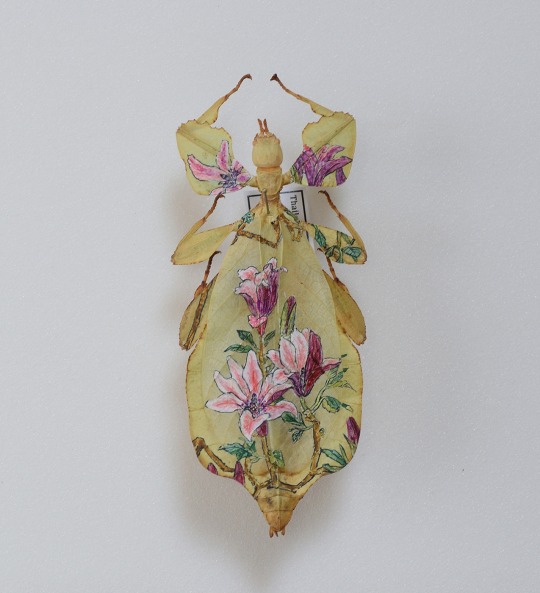

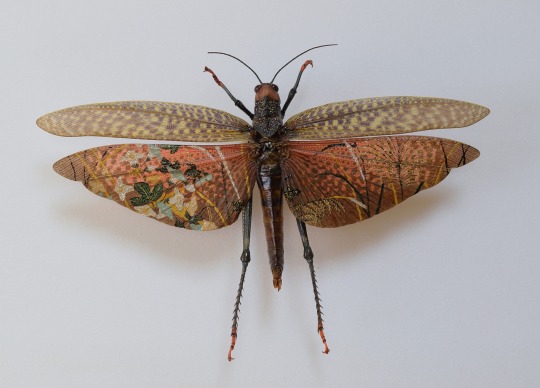

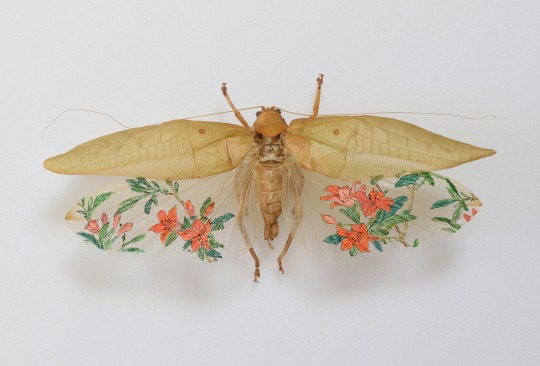



Akihiro Higuchi aka 樋口明宏 (Japanese, b. 1969, Tokyo, Japan) - 1: Mitate-Urushi (K0218), 2018 2: Hana (H0418), 2018 3: Mai-Tanzen (M0718), 2018 4: Mai (M1218), 2018 5: No Title 6: Hana (H0218), 2018 7: Collection-Dress (D0118), 2018 8: Hana (H0818), 2018 9: Mitate-Urushi (K0118), 2018, Insects, Urushi, Gold, Silver.
45K notes
·
View notes
Photo
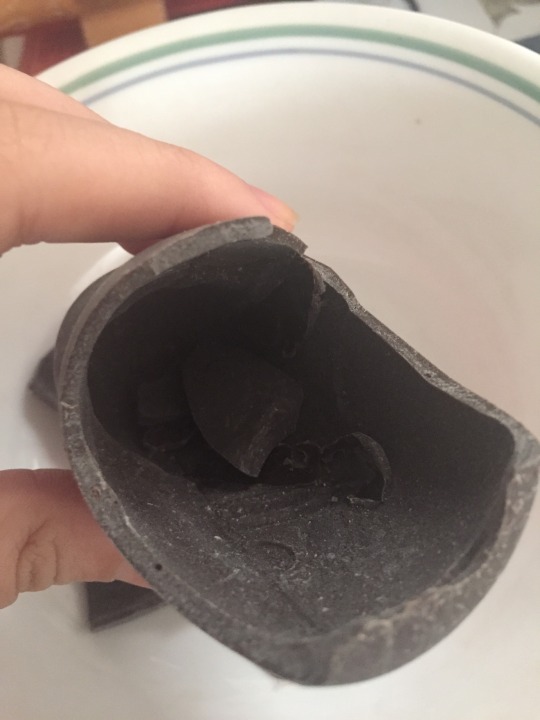
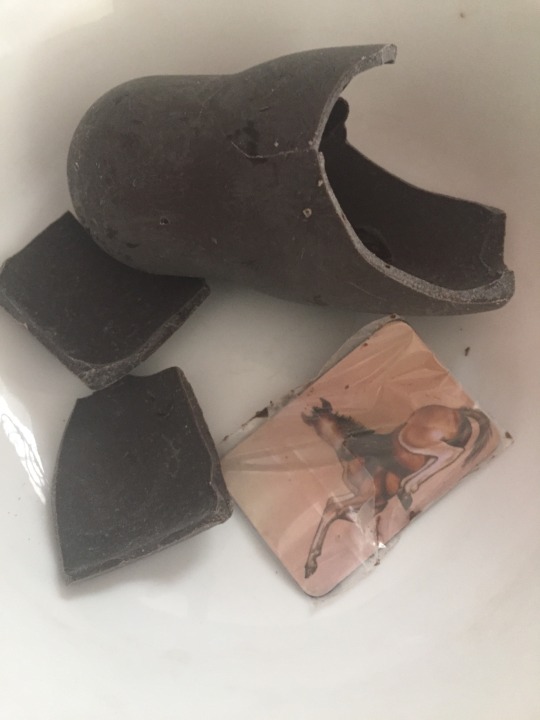
I’m eating this Russian chocolate and it made a rattling noise when I shook it and there’s a horse magnet inside???
461K notes
·
View notes
Text
So last night I dreamed that it was winter and I was at a shopping mall and I looked outside and saw this guy walking his borzoi, who was wearing this giant snow suit. But then the guy heard me laughing through the window and got REALLY mad at me.
Anyway, the dog looked like this.
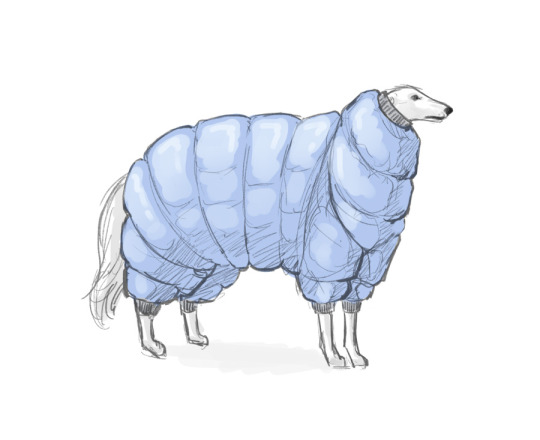
86K notes
·
View notes
Text
folks, I’m just gonna say it. I don’t think it rains for long enough periods of time. it rains hard, it sounds good, I’m comfortable inside, but within 5 minutes the jig is up. the dream is over. I think it should rain for longer periods of time than it presently does
295K notes
·
View notes
Photo



The madmen working on the SuMo anime actually did it. They actually referenced this, of all things.
48K notes
·
View notes
Photo

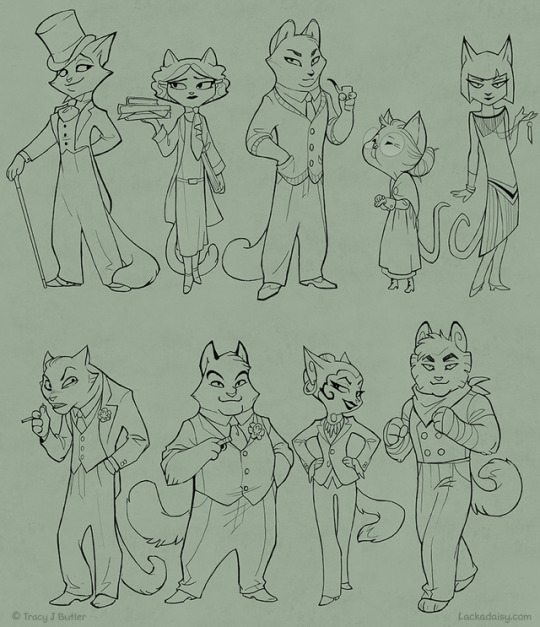


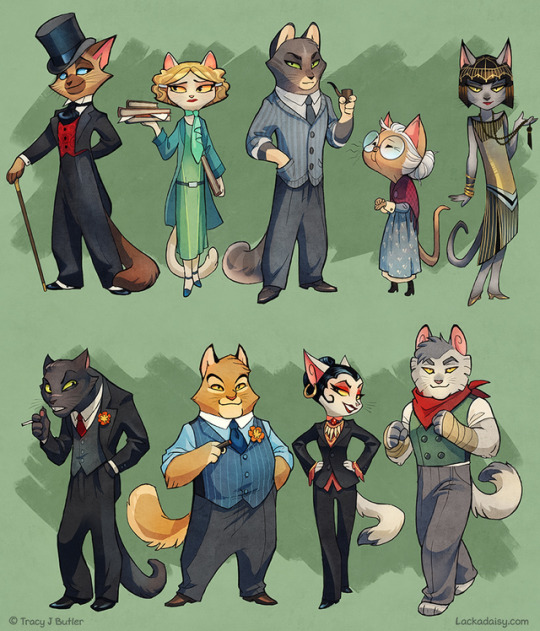
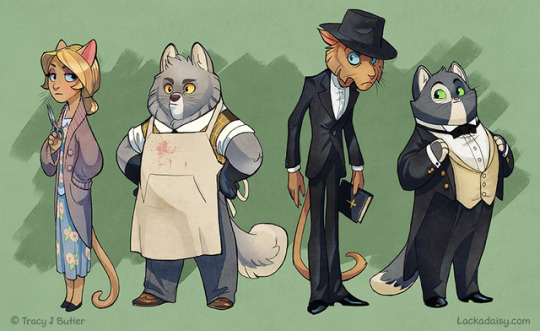
Lackadaisy characters, somewhat toonified. This was sort of a challenge for myself to distill the character designs down to something more simple and cartoon-like, with distinct silhouettes. I wish I had been bolder with the shapes in a lot of places, but it was still good practice for an artist who otherwise tends toward over-rendering things. For my $2+ Patrons, there’s a large PSD available for download with all of the layers neatly separated (silhouettes, shadows, color, details, lines, texture). ————— Lackadaisy is on Patreon - there’s extra stuff!
18K notes
·
View notes
Text
stop forgetting that asians are poc, please, I’m begging you.
this includes anime characters who are 99% of the time, Japanese.
32K notes
·
View notes
Photo
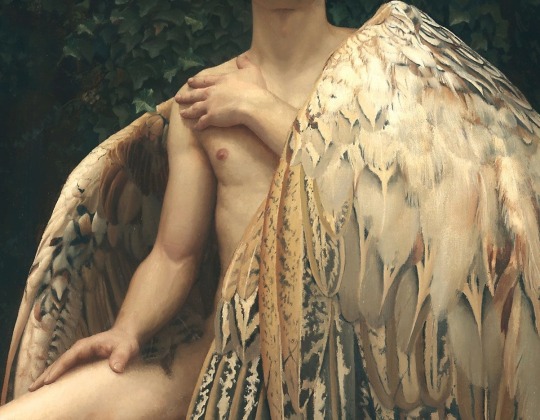
Detail: The Fallen Angel, 2007, by Arantzazu Martinez | If you are sensitive to the majestic beauty and delicacy of this painting, don’t go searching for his head. Just enjoy the little things about life.
84K notes
·
View notes

